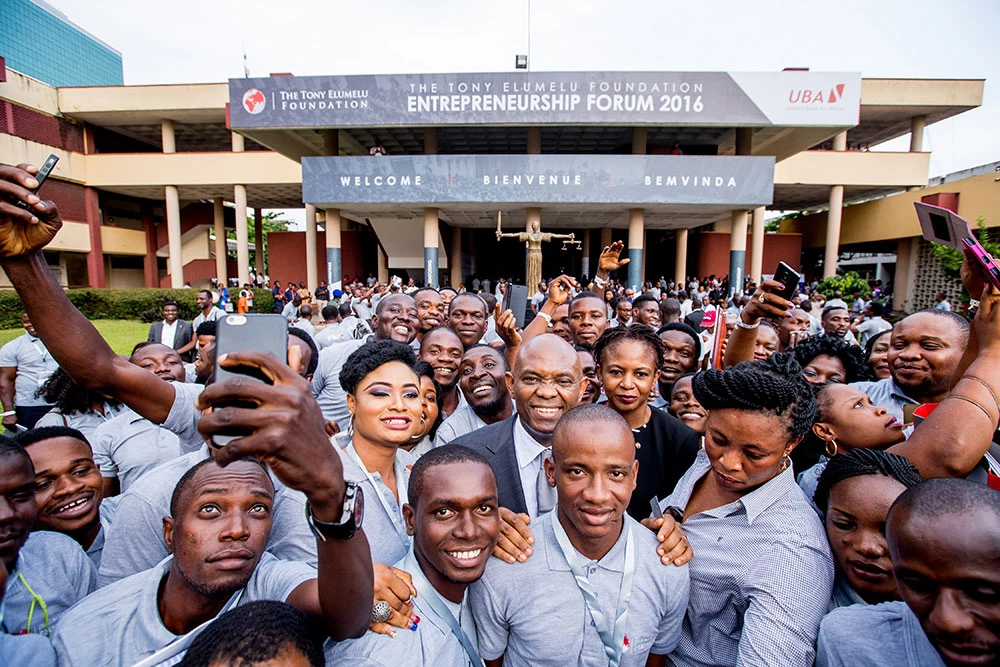The Economist has in its article titled Uberising luck: Africa is full of schemes to help entrepreneurs lauded the support that organisations like the Tony Elumelu Foundation provide as fundamental to the success of enterprises in Africa.
Echoing Mr. Tony Elumelu’s widely acclaimed position on the role that luck plays in personal and business success, the article stated that “As elsewhere, however, most African success stories involve a lucky break. For example, Ms. Buyondo, a small business entrepreneur in Africa achieved success when a savings group at church lent her money and two teachers agreed to work for deferred pay. There is also another entrepreneur, Ivan Zziwa who benefitted from chance encounters and nuggets of advice while studying at the London School of Economics (he now runs an eco-retreat). The article coins these chance encounters the “uberisation” of good fortune. Mr. Elumelu, in a similar way, talks of his foundation as trying to “Institutionalise luck”.
According to The Economist, the Foundation’s alternative approach to developing Africa’s private sector—by fostering good business practices in addition to the grants and business training it offers—is a more sustainable way to support entrepreneurship than lottery-type big-ticket wins that are inherently hard to scale. One of the 7 pillars of its flagship Entrepreneurship Programme, mentoring, has also shown evidence of having the capability of transforming businesses in as little as one year. The article reads:
The writer closed by stating “Mr. Elumelu talks of his foundation trying to “institutionalise luck”. Starting a business will always be a game of chance.” – which is the Tony Elumelu Foundation has successfully done: pioneered a novel model to institutionalise luck among young African entrepreneurs across the continent. The Foundation has made a commitment to empowering 10,000 of them in 10 years to create jobs and revenue on the continent; a commitment which is beginning to pay off only five years into its Entrepreneurship Programme with 7,531 beneficiaries thus far.
Click HERE for the full article


